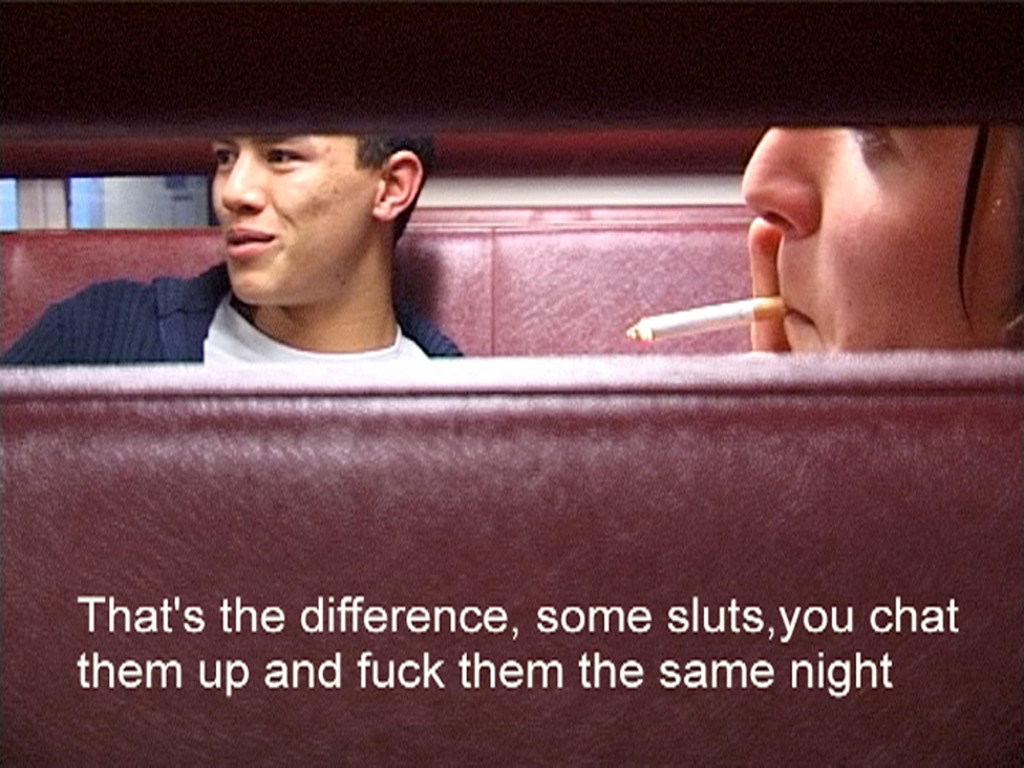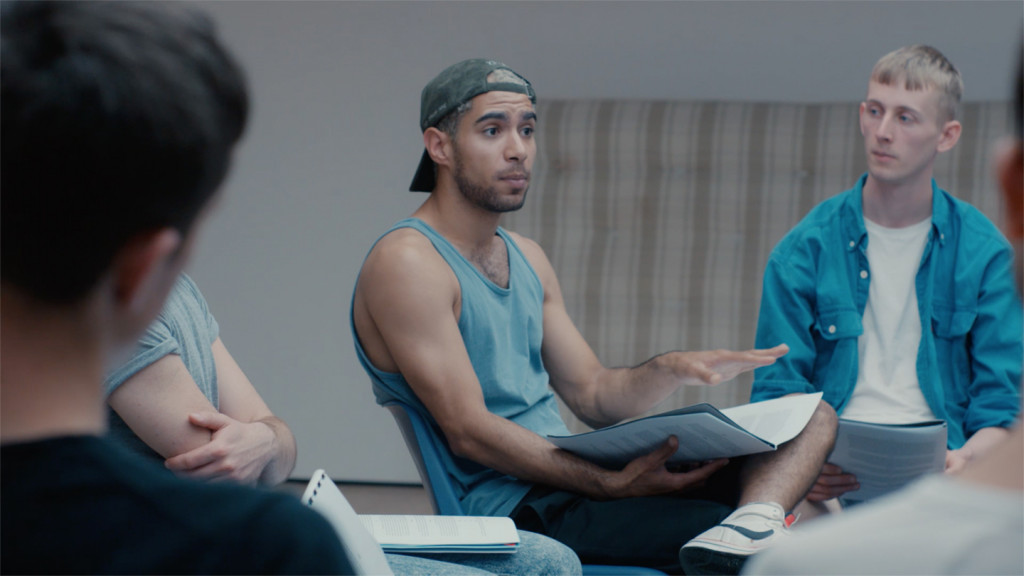VIDEO CLUB
SEX TALKS
Events — Aug 3, 2018
- Price
- € 3,- (excl. museum entrance)
- Location
- Teijin Auditorium
- Time
- Aug 3, 2018, 7 pm until 9 pm
- Main language
- English
- Admission
- Tickets
Video Club: Sex Talks brings together artists who expose and confront normative conceptions of sexuality. Presented in the context of Pride Amsterdam 2018, this second edition of Video Club dives into the museum’s collection of time-based media from a queer and feminist perspective. Videos from the 90s/early 2000s by Tracey Emin and Julika Rudelius will be screened together with a recently acquired work by Cheryl Dunye, followed by the Dutch premiere of British artist Ian Giles’s new film After BUTT (2018). This selection of video work addresses notions of intersectionality by touching upon gender, sexuality, race, and social stratification.
In Why I Never Became a Dancer (1995), Emin offers a personal account of her teenage sexual experiences and the “slut shaming” she endured while growing up in a small, stifling seaside town. Rudelius similarly explores male reactions to female sexuality in her film Train (2001), which features a group of Dutch teenage boys partaking in an explicit conversation where women are referred to misogynistically as sexual objects. Dunye’s She Don’t Fade (1991) examines female sexual identity through the character of Shae Clarke, a black American lesbian, played by the artist herself. Using narration and dialogue, the artists reflect upon social expectations of gender and sexuality, and the interconnectedness between sexual expression and identity.

Taking up a different perspective in his new film After BUTT, Giles considers the history and cultural legacy of the magazine BUTT (2001-11), a publication made for and by gay men. The film follows a group of young gay men participating in a workshop where they attempt to re-narrate transcribed interviews Giles conducted with the magazine’s founders. Through these dialogues, the discussion charged with anecdotes evolves into a larger conversation about the male gay community, issues of race and gender, and identity.
PROGRAM
- 7:00 PM
- Doors open – chicken saté & beer
- 7:20 PM
- Introduction by Henri J. Sandront
- 7:25 PM
- Start screening
- 8:35 – 9:00 PM
- Discussion
Chicken saté and refreshments will be served. The collection screening and Dutch premiere of After BUTT will be followed by a discussion with artist Ian Giles and the Stedelijk’s Producer of Public Programs, Henri J. Sandront. Open discussion with the audience is encouraged. After the screening, the three works from the collection will be temporarily on view as part of the display in Stedelijk BASE. Ian Giles’ After BUTT will subsequently be screened at the hotel Andaz Amsterdam Prinsengracht on the occasion of the Canal Parade (Saturday August 4th).
LIST OF WORKS
Tracey Emin (1963)
Why I Never Became a Dancer, 1995
Video, color, sound, 6 min., 39 sec.
Acquired in 2003
Julika Rudelius (1968)
Train, 2001
Video, color, sound, 7 min.
Acquired in 2003
Cheryl Dunye (1966)
She Don’t Fade, 1991
Video, black & white, sound, 23 min., 48 sec.
Acquired in 2018
Ian Giles (1985)
After BUTT, 2018
Video, color, sound, 34 min.
On loan from the artist

VIDEO CLUB
Video Club is a new screening series highlighting the Stedelijk’s collection of time-based media. Through thematically organized selections of moving image works, Video Club presents films and videos spanning diverse eras, regions, and artistic movements. The rotating screening series puts time-based media into dialogue with other works on view in Stedelijk BASE, and draws attention to prominent issues and motifs that recur throughout the museum’s collection.
Video Club: Sex Talks is curated and produced by Public Program producer Henri J. Sandront.
